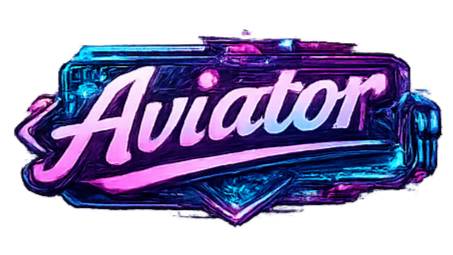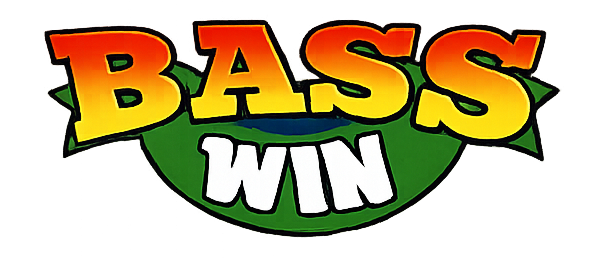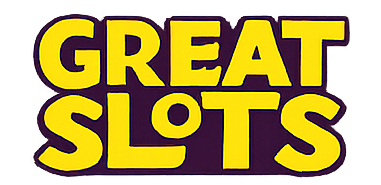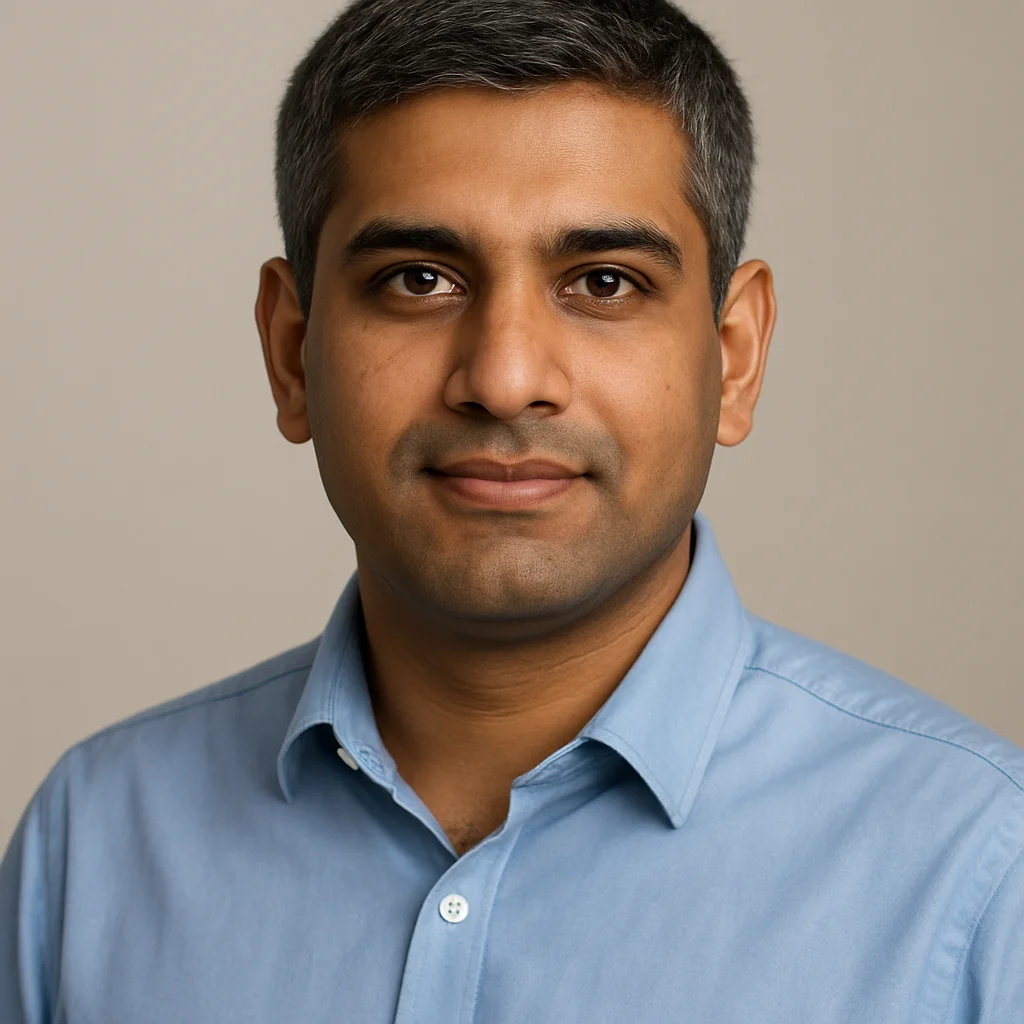Technical Aviator Game India Data and Fair Random Number Logic 2026
The Aviator game India remains a top-tier crash title from Spribe. Players monitor a rising multiplier, aiming to cash out before the plane vanishes. This mechanic ensures complete transparency for everyone.
Trusted Casinos That Skip Verification
- LuckyMate1
- MrBen Sports2
- Highbet3Highbet500% Bonus up to €2,500 + 200 Free SpinsGenerous bonuses with transparent wagering requirements
- BassWin Casino4
- Great Slots5Great SlotsPlatinum: 550% up to €11,000 + 1,100 Free SpinsSocial responsibility and player protection first
Monitor Market Trends and Payouts
By 2026, the local market has embraced this fast-paced format across platforms like 1Win and Parimatch. Real-time statistics and social features define the current landscape. Users prioritize quick payouts and mobile-first interfaces when engaging with these digital assets for consistent entertainment and fun.
Distinctive Features of Top Gaming Sites

The landscape for Aviator Game India is vast, with various international operators tailoring their services to local players. While the core mechanics of the Spribe-developed title remain consistent, the surrounding environment, loyalty programs, and technical layouts change significantly depending on the chosen site.
Return Rates and Promotional Structures
Every official version of this crash game maintains a theoretical return to player of 97%. However, the way platforms like 1Win or Mostbet incentivize participation varies. For instance, 1Win provides a massive 500% welcome package distributed over the first four deposits, while Bluechip focuses heavily on weekly cashback to mitigate losses.
Mostbet also offers competitive entry rewards, though the specific caps might differ. These financial structures are designed to give Indian users more longevity during their sessions. By comparing these incentives, players can determine which site aligns better with their specific budget and risk tolerance.
Aesthetic and Functional Contrasts
Visual presentation plays a major role in how users interact with the flight path. 1Win opts for a sleek, dark-themed, and minimalistic interface that keeps the focus entirely on the rising multiplier. In contrast, 1xBet and Mostbet provide a more data-heavy environment, displaying extensive live statistics and historical round data on the main screen.
These operational differences extend to mobile performance as well. While some brands prioritize a lightweight browser version, others like Parimatch ensure their dedicated applications are optimized for low-latency performance on various Android and iOS devices. This ensures the plane never lags during critical cash-out moments.
Withdrawal Limits and Banking Methods
Financial logistics are a primary concern for the Indian market. Leading platforms have integrated local solutions such as UPI, Paytm, and Google Pay to facilitate seamless transactions. Pin-Up and Bluechip are known for their rapid internal processing, often reflecting deposits within minutes for immediate participation in active rounds.
Withdrawal timelines vary by brand. While some local-focused sites offer nearly instant payouts, international giants like Betway may take up to three business days for bank transfers. Understanding these payout thresholds and system requirements is essential for managing your bankroll effectively across different gaming environments.
Fundamental Logic and Playing Norms
Understanding the internal workings of the Aviator game is vital for any player in India. This crash game relies on a blend of timing and luck, where every second counts toward potential winnings and the overall outcome of each session you play today.
Essential Gameplay Procedures
Players start by placing one or two stakes before the round begins. The dual-bet system allows for different strategies, such as securing a small profit on one while letting the other run for higher stakes simultaneously to maximize gains effectively.
Once the countdown ends, a red plane takes flight starting from a 1.00x coefficient. The flight path is unpredictable, and the round continues as long as the aircraft remains visible on the main screen area for the active participants.
The multiplier increases as the plane climbs higher. To win, you must click the cash-out button before the plane flies away, which happens at a random moment determined by the internal system logic and the secure RNG.
Users can utilize automated tools to manage their sessions efficiently. These include auto-betting for consistent stakes and auto-cashout, which triggers a payout once a specific multiplier level is reached without manual intervention from the active user.
Mathematical Algorithm Structure
The growth of the coefficient is governed by a cryptographic algorithm that ensures every flight is unique. This randomization prevents any external interference or predictable patterns during the gameplay, maintaining total transparency for all participants involved here.
Multipliers can vary significantly, often ranging from 1.40x to 200x or even higher. While low multipliers occur frequently, the rare high peaks provide the potential for substantial returns on small stakes for lucky players in India.
Visual Interface Elements
The layout is designed for quick reactions, featuring a central flight zone and clear control buttons. You can easily switch between betting panels and monitor your current balance in real-time while watching the plane fly across the digital screen.
Historical Wagering Data
A dedicated statistics panel shows the All Bets section, where you can see the actions of other participants. This area also displays the history of recent multipliers to help track previous outcomes and trends for better decision making in rounds.
Community Interaction Tools
An integrated chat feature allows players to communicate and share results during live rounds. Additionally, the top panel provides access to the bet hash, proving the fairness of every single flight through verifiable data and transparent server records.
Evaluating Aviator Game Strengths and Weaknesses

Understanding the balance between entertainment and risk is vital for players in India. This crash game offers a specific set of features that define its popularity across local platforms. Users often weigh these factors before committing their balance to the flight.
Several technical and social factors contribute to the massive success of this title among Indian enthusiasts. These elements combine to create a fast-paced environment that rewards quick decision-making and strategic patience.
- A high return to player rate of 97% ensures competitive payout potential over long-term sessions.
- The straightforward mechanics allow new users to understand the gameplay within seconds of joining.
- Integrated live chat functionality enables real-time interaction and strategy sharing with other active participants.
- Provably Fair technology guarantees that every round outcome is completely transparent and mathematically untampered.
- Dedicated mobile applications for Android and iOS provide seamless access for gaming on the go.
- Automated withdrawal settings help players secure profits at predetermined multiplier levels without manual delays.
Despite the numerous advantages, certain aspects might not appeal to every type of digital gamer. It is important to acknowledge these limitations to maintain a realistic perspective on the software.
- The visual presentation remains quite minimal and basic compared to modern cinematic video slots.
- Repetitive gameplay cycles can lead to a sense of boredom during extended periods of play.
- Frequent occurrences of low multipliers may frustrate those seeking massive consecutive wins during their virtual flight journey.
Security Protocols and Software Reliability
The core of the Aviator game relies on a Random Number Generator. This system ensures that every single round is entirely independent of previous results. No person or machine can determine the exact moment the plane disappears from the digital screen without warning.
The software maintains a high Return to Player rate, typically around ninety-seven percent. This transparent mathematical model provides a fair environment for Indian players. It balances the house edge while allowing for frequent winning streaks during active betting sessions across the country.
Provably Fair technology adds an extra layer of protection through cryptographic verification. This allows anyone to check the game seeds after a round concludes. Such transparency confirms that the results were not tampered with by any licensed gaming platform.
Dangers of Using Third-Party Predictors
Many fraudulent platforms promote tools like the Aviator Predictor APK. These applications claim to use artificial intelligence to forecast the next multiplier. However, these claims are false because the game logic remains encrypted on secure servers far beyond external reach.
Downloading these unauthorized files puts your digital safety at significant risk. Most of these tools serve as fronts for phishing attempts. They aim to capture your login credentials or financial details while providing completely random and useless data points to unsuspecting users.
- Severe risk of sensitive data exposure to unknown cybercriminals.
- Highly unreliable results that lead to rapid bankroll depletion.
- Deceptive subscription scams that drain funds without providing value.
Handling Your Aviator Game Account Balance

To enjoy uninterrupted sessions in the Aviator game, understanding the local payment landscape is essential for every player. Indian participants have access to various secure methods that facilitate quick transfers across the country. Efficiently handling your balance ensures that you can focus on the rising multiplier without worrying about transaction delays or technical hurdles that might disrupt your session during peak hours.
- Navigate to the cashier area to select a payment provider like UPI, PhonePe, or IMPS, enter your desired amount in rupees, and confirm the transfer to see credits appear within your wallet instantly.
- Request a payout by choosing the same banking channel used for adding funds, specifying the amount you wish to move, and waiting for the internal security team to approve the withdrawal request.
Consistency in your choice of financial tools is vital for a smooth process. Using the platform as a tool for currency exchange rather than gaming will lead to mandatory identity verification checks. These protocols exist to prevent money laundering and ensure that all participants follow the established terms of service while playing this popular crash game within the Indian market.
Accessing the Game on Portable Devices
Mobile play is essential for modern gamers in India. Most platforms provide dedicated software or web-based solutions to ensure smooth gameplay on the move. Whether using a native application or a progressive web app, the interface remains intuitive and responsive.
This accessibility allows for a consistent gaming session regardless of your physical location. These mobile solutions are optimized to consume minimal data while maintaining quality. This ensures that players with varying internet speeds enjoy the action without lag.
Installation Procedure for Android Users
- Visit the official website and locate the download link for the APK file to begin.
- Enable the option to allow installations from unknown sources in your phone settings menu.
- Open the downloaded file and confirm the installation process to proceed with the setup.
- Launch the app and enter your credentials to start playing the game immediately.
Adding a Shortcut for iOS Devices
- Open the Safari browser and navigate to the gaming platform homepage on your device.
- Tap the share button located at the bottom of the screen to open options.
- Select the option to add the page to your home screen for quick access.
Ensuring Safety and Profile Verification
Verification is a vital step for every player. It ensures that only legitimate users access the platform and protects your funds from unauthorized withdrawals. Completing this process early prevents delays when you want to collect your winnings from the balance.
Platforms use advanced encryption to safeguard user data. By providing valid identification, you strengthen the safety of the entire community and create a secure environment. This protocol is standard across the industry to maintain high trust levels.
Truth About Forecasting Software Scams
Many third-party programs claim to forecast the outcome of the next round. These tools are fraudulent. The game operates on a Provably Fair system that generates random results. No software can bypass this encryption or guess when the plane flies away.
Relying on such apps leads to account bans or loss of data. Stick to legitimate strategies and enjoy the transparency of RNG mechanics. Authentic platforms prioritize fairness, making external hacks useless and dangerous for your device security and financial safety.
Rewarding Schemes for Indian Aviator Players

New users joining the platform to play Aviator can access a multi-tier financial boost that enhances the initial bankroll significantly. This incentive structure spreads across the initial four funding actions, providing a substantial cushion for those looking to understand the flight mechanics without risking only their primary capital. The total accumulation reaches a massive 500% value.
- Initial deposit triggers a 200% match added to the bonus balance.
- Second transaction provides a 150% addition for continued play.
- Third payment adds a 100% credit to the user account.
- Fourth transfer grants a final 50% increase to complete the package.
Utilizing a special voucher during the signup phase allows players to unlock these specific terms effectively. It is essential to input the character sequence correctly before finalizing the account creation to ensure the system recognizes the eligibility for the full 500% package. This manual entry ensures that the promotional tracking applies to all subsequent deposits made by the player.
- Locate the specific field for the voucher code on the registration form.
- Confirm the submission to trigger the immediate activation of the bonus funds.
Accessing the Crash Game via Portable Devices
Playing on the move is facilitated through dedicated software designed for modern smartphones and tablets. These applications maintain all the core functionalities of the desktop version, ensuring smooth flight animations and instant cash-out responses regardless of the screen size. The interface adapts perfectly to touch controls, allowing for rapid betting decisions which are vital for success in high-speed games like Aviator.
Setting Up the Android Package File
- Access the official site via a mobile browser to find the download link.
- Download the APK file directly to the storage of the mobile device.
- Enable installation from unknown sources within the security settings menu.
- Launch the installer and complete the setup to start playing immediately.
Apple Device Installation Protocol
- Open the Safari browser and navigate to the main gaming portal.
- Tap the share icon located at the bottom of the browser screen.
- Select the option to add the shortcut to the home screen.
- Rename the new icon for quick identification and confirm the addition.
Protecting Your Aviator Game Account
Avoid any software or applications claiming to predict exact multipliers or game outcomes. These tools are fraudulent and cannot bypass the Provably Fair encryption that secures every round of the game.
Telegram signal bots often promise guaranteed wins to unsuspecting players. These are deceptive tactics designed to steal personal data or financial resources without providing any actual mathematical advantage during live play.
Stick to verified platforms and enable two-factor authentication for maximum safety. Never share login credentials with third parties promising secret winning formulas, automated scripts, or cracked versions of the mobile application.
Financial Incentives and Player Reimbursements

New participants can access significant capital boosts through a structured welcome package. These rewards help extend gameplay across various crash titles while providing a larger starting balance for strategic betting.
Multi-Stage Deposit Bonus Structure
- The initial transaction grants a 200% increase on the base amount.
- A second payment adds a 150% credit to the bonus wallet.
- The third transfer provides a 100% match for continued play.
- A fourth deposit includes a final 50% bonus for users.
Terms for Bonus Activation
- The maximum reward limit per stage reaches 50,000 RUB or equivalent.
- This offer applies exclusively to the first four account funding actions.
- Specific wagering requirements must be satisfied before funds become withdrawable.
If a player deposits a specific amount in INR, the system calculates the matching percentage based on the current tier. This balance remains within a separate wallet until the turnover conditions are fully met.
Weekly Loss Recovery Systems
Every Saturday at 00:00, the platform evaluates the total losses incurred during the previous seven days. A specific percentage of these funds is returned directly to the main player account balance.
- Minimum wagering thresholds determine the specific refund rate for the week.
- Recovered funds are credited without any additional wagering needs or restrictions.
Wagering 100,000 RUB might trigger a 1% return for the user. Reaching a total of 1,000,000 RUB in bets can increase the cashback percentage significantly toward the maximum 30% ceiling allowed.
Sources for Finding Promotional Vouchers
- Specialized gaming forums where enthusiasts exchange the latest available offers.
- Electronic newsletters delivered to the inbox of verified platform members.
- Official social media pages that announce limited-time rewards for followers.
- Instant messaging groups on Telegram that provide immediate alerts for new bonuses.
Applying these rewards is a straightforward process that allows players to increase their playing time without additional deposits. Users should follow these specific steps to ensure the bonus is credited correctly to their gaming profile balance, enabling them to place more bets on the rising aircraft.
- Access the gaming account and open the deposit or profile menu.
- Find the specific box labeled for bonus codes or promotional strings.
- Type the sequence carefully and click the activation button to update the wallet.
Strategic Methods for Aviator Success
Implementing a clear plan is essential for anyone looking to improve their performance in the Aviator game. While the outcome remains random, these structured techniques help in managing risks and optimizing potential returns over long sessions by providing a disciplined framework for every wager placed.
Low Volatility Playstyle
This approach prioritizes safety by targeting multipliers in the 1.2x to 1.5x range. By exiting the round early, players secure consistent small gains. This method is ideal for those with a limited budget who want to minimize the impact of the plane flying away unexpectedly and losing their stake.
Targeting Maximum Multipliers
High-yield seekers focus on the elusive 100x multiplier, which appears less frequently but offers massive rewards. This strategy requires patience and a willingness to lose several small bets while waiting for the rare moment when the plane reaches extreme heights, often requiring hours of observation.
Double Stake Technique
This methodology involves placing two separate wagers on a single flight. The first wager is set to auto-cashout at 2.0x, effectively covering the total cost of both bets. The second wager is then allowed to climb higher, providing a risk-free opportunity to hit a significant multiplier.
Incremental Betting Logic
- Increase the size of the wager by two times following every round that ends in a loss.
- Revert the betting amount to the original base level as soon as a winning round occurs.
- Maintain a sufficient balance to handle at least ten consecutive losses to avoid total depletion.
Provably Fair Algorithm Mechanics
The core of this software relies on Provably Fair technology, ensuring every round remains completely transparent for all participants. Unlike traditional slot machines found in digital lobbies, the outcome comes from the players and the operator together.
This cryptographic method prevents any third-party interference with the flight path or the final multiplier result. Users can verify the honesty of each multiplier through the history menu quite easily after any round ends.
This builds immense trust among Indian users who value fairness and transparency above all else. The system creates a unique seed for every session, making it impossible for anyone to predict the exact moment the flight ends.
Mastering the Cash Out Moment
Success depends entirely on when a player decides to claim their winnings before the crash occurs. The multiplier starts at 1.00x and can soar to incredible heights or end instantly without any warning.
This creates a high-tension environment where psychological discipline is just as vital as pure luck during each active session. Many successful players in India focus on consistent small gains rather than chasing massive, risky peaks.
By using the auto-cashout feature, users can set a specific limit where the software automatically secures their profit. This removes emotional bias from the decision-making process and helps maintain a steady balance.
Astronaut Adventure
This title takes the crash mechanic to deep space with a unique visual style that stands out. It offers a different pacing compared to the standard plane flight, appealing to those who enjoy cosmic themes and futuristic designs. The interface remains intuitive for those moving from other crash titles.
- Return to player rate of 98%
- Maximum payout capped at $10,000
- Interactive shield mechanic for protection
- Half cash out option available
- Advanced social betting interface
- High-definition space graphics
This version has gained significant traction in the Indian market due to its high return percentage and engaging visuals. It provides a refreshing change of scenery while keeping the core mechanics familiar to fans of the genre. The cosmic setting adds a layer of excitement to every round.
Lucky Jet Highlights
- Exclusive availability on 1Win platform
- Character-driven gameplay featuring Joe
- Live betting statistics for all users
- Internal chat for community interaction
- History of previous flight multipliers
- Dual bet placement capability
Cash or Crash Live
- Live dealer interaction from Evolution
- Augmented reality blimp setting
- Green ball ladder progression system
- Massive potential for 50,000x wins
Aviatrix NFT Integration
- Customizable aircraft as NFT assets
- Loyalty programs based on flight hours
- Daily prize pool competitions
Rocket X Action
- Maximum win potential of $30,000
- Fast-paced round transitions
- Humorous character animations
- Optimized for mobile performance
Space XY Features
- Multiplier limit reaching 10,000x
- Minimalist coordinate grid design
- Multiple bet options per round
- Developed by BGaming studio
Jet X Performance
- Stable 97% return to player
- Progressive jackpot opportunities
- Classic arcade visual aesthetic
- Smooth gameplay on older devices
Common Questions About Aviator India
Can players predict the flight outcomes?
No, Provably Fair technology ensures every round is random. This cryptographic system prevents any manipulation or forecasting of the final multiplier.
What are the highest possible winnings?
Players can wager up to $420 per round. The maximum potential return reaches a 200x multiplier, depending on when you choose to exit.
Is this the popular plane money game?
Yes, it is widely known by that name in India. The gameplay involves a rising plane where you must secure profits before it disappears.
Why is this game so popular?
It offers social interaction, live betting statistics, and simple rules. The fast rounds provide immediate results, making it highly engaging for modern players.
Are these gaming platforms secure?
Licensed sites like 1Win use high-level encryption. These platforms adhere to strict safety standards to protect user data and financial transactions across India.






